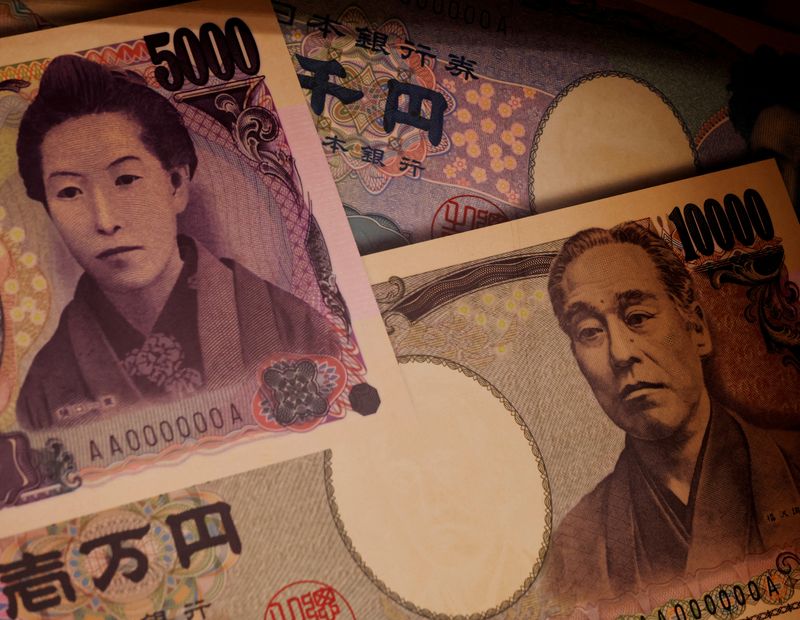Tetsushi Kajimoto
TOKYO (Reuters) – Japan’s three main monetary authorities held an emergency meeting on Wednesday to discuss a weak yen and said they were ready to intervene in the market to stem what they called erratic and speculative moves in the currency.
In a sign of growing urgency to set a floor for the yen after the currency fell to a 34-year low against the dollar, the Bank of Japan, Treasury Ministry and Japan Financial Services Agency held a meeting late during Tokyo trading hours.
At a briefing afterward, top currency diplomat Masato Kanda said he “does not rule out any steps in response to erratic movements in the exchange rate.” Kanda also said the Bank of Japan will respond through monetary policy if currency movements affect the economy and price trends.
The dollar fell against the yen on news of the meeting and was last at 151.06 after Kanda’s speech. The yen was previously trading at 151.97, below the 151.94 level at which Japanese authorities intervened to buy the currency in October 2022.
The yen continues to lose ground despite the Bank of Japan’s historic move away from negative interest rates last week.
A weaker yen makes exports from the world’s fourth-largest economy cheaper but could push up the price of energy and other Japanese imports, fueling inflation and raising the cost of living.
This undermines the BOJ’s goal of achieving a sustainable 2% inflation rate through wage growth and household purchasing power rather than cost-push inflation.
Earlier in the day, Finance Minister Shunichi Suzuki said authorities could take “decisive steps” against the yen’s weakness – language he has not used since 2022, the last time Japan intervened in the market. He made his announcement shortly after the dollar rose sharply on the back of strong US data.
“We are now watching market movements with great urgency,” he told reporters.
Christopher Wong, currency strategist at OCBC in Singapore, said markets were cautiously testing where the line lay for Tokyo.
“I think the risk of intervention is quite high because this is a new cycle high,” he said, adding that if Tokyo doesn’t take action, it will simply encourage people to push the dollar-yen exchange rate much higher in the future. next few days.
DOMINO EFFECT
Bank of Japan Governor Kazuo Ueda said on Wednesday that the central bank would also closely monitor exchange rate developments.
“Exchange rate movements are among the factors that have a big impact on the economy and prices,” Ueda told parliament when asked about the yen’s recent sharp fall.
Forex strategists at National Australia Bank (OTC:) said the effects of the yen’s fall were being felt elsewhere and said the recent sharp drop could be a policy response aimed at protecting the competitiveness of Chinese exports.
“This is not just a yen story. It’s a domino effect that puts other currencies at risk of depreciation,” said NAB strategist Rodrigo Catril.
Although the Bank of Japan raised interest rates last week for the first time since 2007, markets believe the next hike could be some time away.

This has increased the use of the yen in carry trades, in which investors borrow in a currency with low interest rates and invest the proceeds in a higher-yielding currency. Japanese investors could also make much higher returns overseas by depriving the yen of support from repatriation flows.
In the current quarter, which ends later this week, the yen is the worst-performing major currency, losing more than 7% against the dollar.


